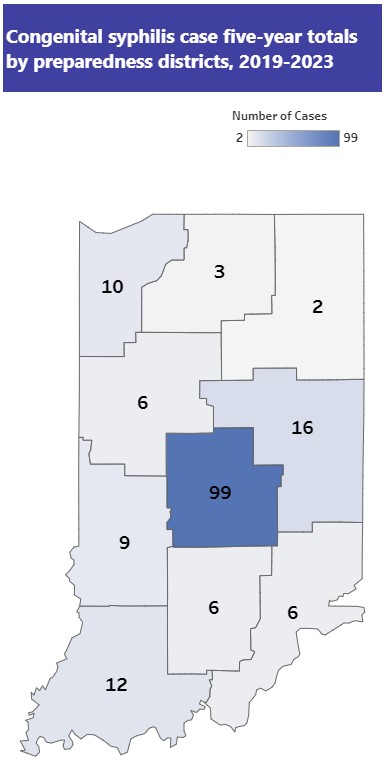Understanding Syphilis: Causes, Symptoms, Diagnosis, and Treatment
Syphilis is a sexually transmitted infection (STI) caused by the bacterium Treponema pallidum. It progresses through distinct stages and can lead to serious health complications if not treated promptly. Understanding the causes, symptoms, diagnosis, and treatment options for syphilis is crucial for effective management and prevention. This article provides an overview of syphilis, including its impact on health and steps to take for prevention and treatment.
What is Syphilis?
Syphilis is an STI caused by Treponema pallidum, a spiral-shaped bacterium. The infection progresses through four stages—primary, secondary, latent, and tertiary—each with distinct symptoms and potential complications. Syphilis is transmitted through direct contact with syphilitic sores (chancre) during sexual activity, including vaginal, anal, and oral sex. It can also be transmitted from an infected mother to her baby during pregnancy, which is known as congenital syphilis.
Stages of Syphilis
1. Primary Syphilis:
- Symptoms: Characterized by a painless sore or ulcer known as a chancre at the site of infection, usually genital, anal, or oral. The sore typically appears about three weeks after exposure and heals on its own within a few weeks, even without treatment.
- Diagnosis: Identification of the chancre and laboratory testing of fluid from the sore or blood tests.
2. Secondary Syphilis:
- Symptoms: Occurs a few weeks to months after the primary chancre heals. Symptoms include:
- Rash: A non-itchy rash that often appears on the trunk, arms, and legs.
- Mucous Membrane Lesions: Sores in the mouth, throat, or genital area known as mucous membrane lesions or condylomata lata.
- Lymphadenopathy: Swollen lymph nodes throughout the body.
- Flu-like Symptoms: Fever, sore throat, and malaise.
- Diagnosis: Blood tests to detect antibodies produced in response to the infection.
3. Latent Syphilis:
- Symptoms: In this stage, the infection is not active, and there are no symptoms. However, the bacteria remain in the body and can cause problems later if not treated.
- Diagnosis: Detected through blood tests; latent syphilis is identified when no symptoms are present but previous positive test results are available.
4. Tertiary Syphilis:
- Symptoms: Occurs years after the initial infection if syphilis remains untreated. It can cause severe health issues, including:
- Gummatous Syphilis: Large sores or lumps (gummas) that can occur on the skin, bones, or organs.
- Cardiovascular Syphilis: Damage to the heart and blood vessels, including the aorta.
- Neurosyphilis: Infection of the nervous system, which can lead to neurological problems such as dementia, paralysis, and sensory impairment.
- Diagnosis: Based on symptoms, history of syphilis, and specialized tests for neurological or cardiovascular involvement.
Diagnosis of Syphilis
Diagnosing syphilis involves several steps:
- Medical History and Symptoms: A healthcare provider will review symptoms and sexual history to assess the risk of syphilis.
- Physical Examination: An examination may reveal characteristic sores or rashes associated with syphilis.
- Laboratory Testing:
- Non-Treponemal Tests: Initial tests that detect antibodies produced in response to the infection, such as the RPR (Rapid Plasma Reagin) or VDRL (Venereal Disease Research Laboratory) tests.
- Treponemal Tests: Confirmatory tests that detect antibodies specific to Treponema pallidum, such as the FTA-ABS (Fluorescent Treponemal Antibody Absorption) test.
Treatment of Syphilis
Syphilis is effectively treated with antibiotics. The treatment depends on the stage of the infection:
- Primary and Secondary Syphilis: A single intramuscular injection of benzathine penicillin G is typically effective.
- Latent Syphilis: Treatment usually involves a longer course of benzathine penicillin G, with the duration depending on the length of latency.
- Tertiary Syphilis: Treatment may require more intensive regimens, including intravenous penicillin for neurosyphilis or cardiovascular syphilis.
For individuals allergic to penicillin, alternative antibiotics may be used, but it is essential to consult a healthcare provider for appropriate treatment.
Complications of Syphilis
If left untreated, syphilis can lead to serious health complications, including:
- Neurological Damage: Neurosyphilis can cause cognitive impairment, motor dysfunction, and other neurological issues.
- Cardiovascular Issues: Damage to the heart and blood vessels can lead to life-threatening conditions.
- Gummas: Painful lumps or sores can affect various organs, leading to significant health problems.
Prevention of Syphilis
Preventive measures can help reduce the risk of contracting syphilis:
- Consistent Use of Condoms: Using condoms during all sexual activities can reduce the risk of STI transmission.
- Regular Screening: Routine screening for syphilis is recommended for sexually active individuals, especially those with multiple partners or a history of STIs.
- Mutual Monogamy: Being in a mutually monogamous relationship with a partner who has tested negative for STIs can lower the risk.
- Avoiding Risky Behaviors: Limiting the number of sexual partners and avoiding unprotected sex can reduce the risk of STI transmission.
Syphilis is a serious STI that progresses through distinct stages and can have severe health implications if left untreated. Understanding its causes, symptoms, diagnosis, and treatment options is essential for effective management and prevention. Regular screening, safe sex practices, and prompt treatment are key to reducing the risk of syphilis and maintaining overall sexual health. If you suspect you have syphilis or need guidance on prevention and treatment, consult with a healthcare provider for personalized advice and care.



